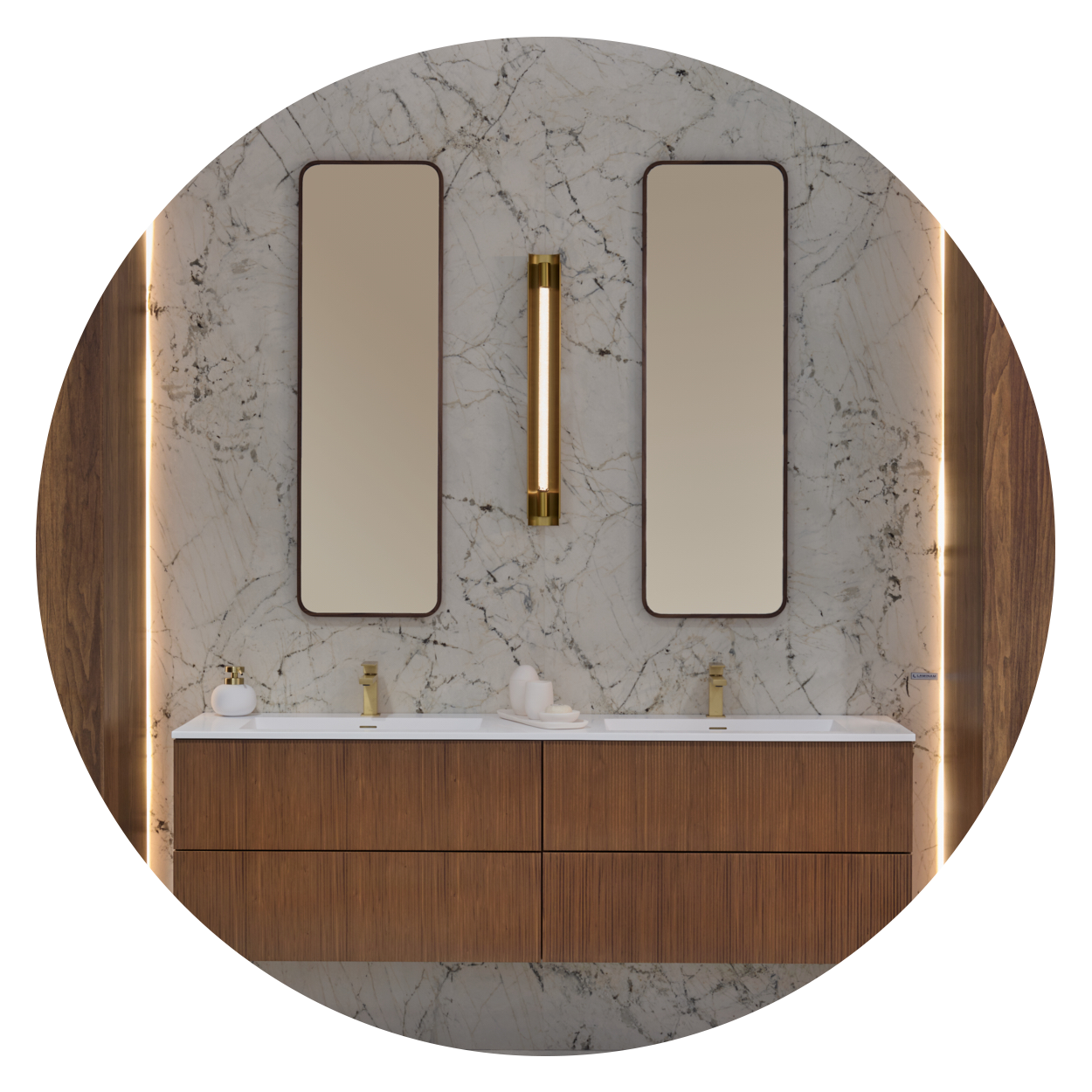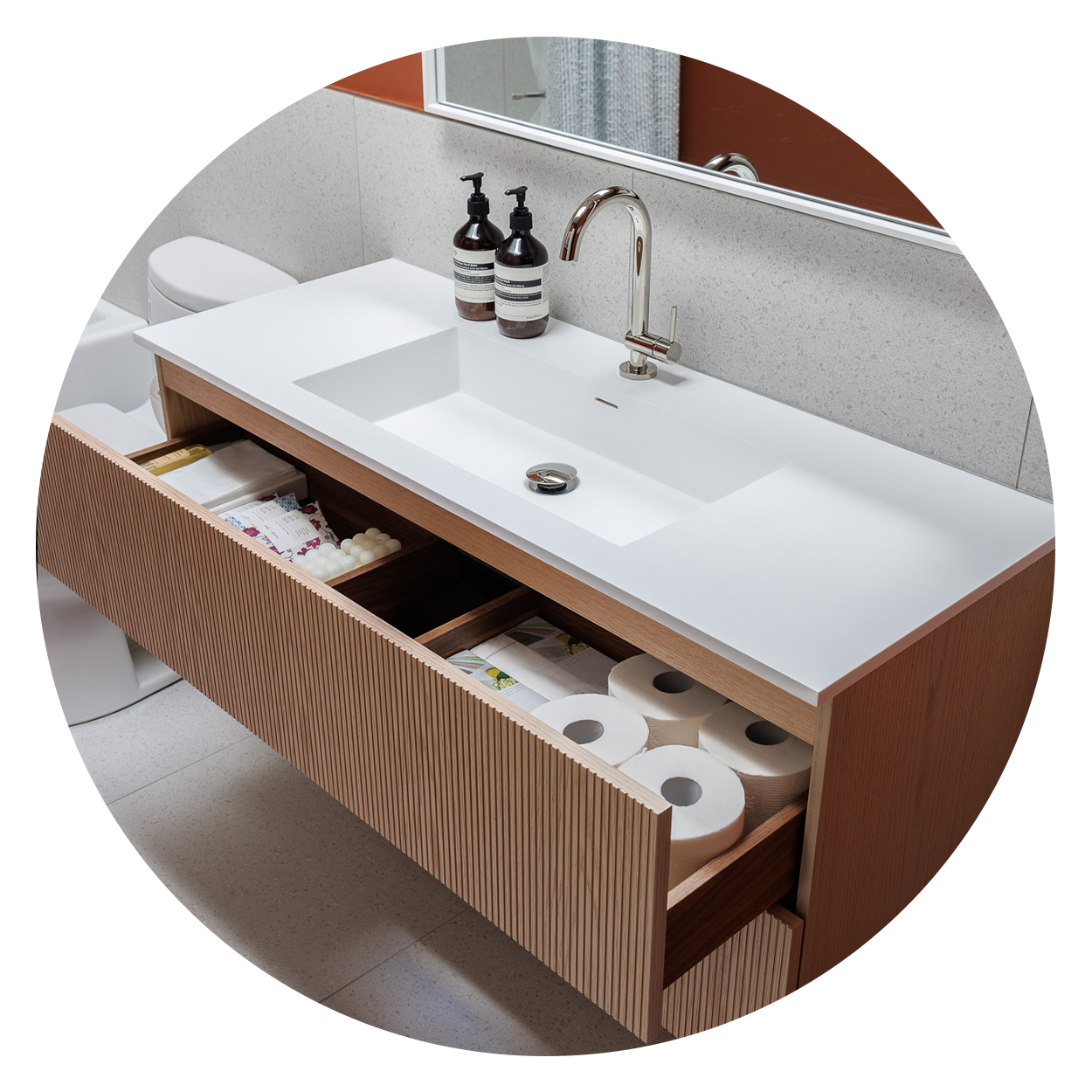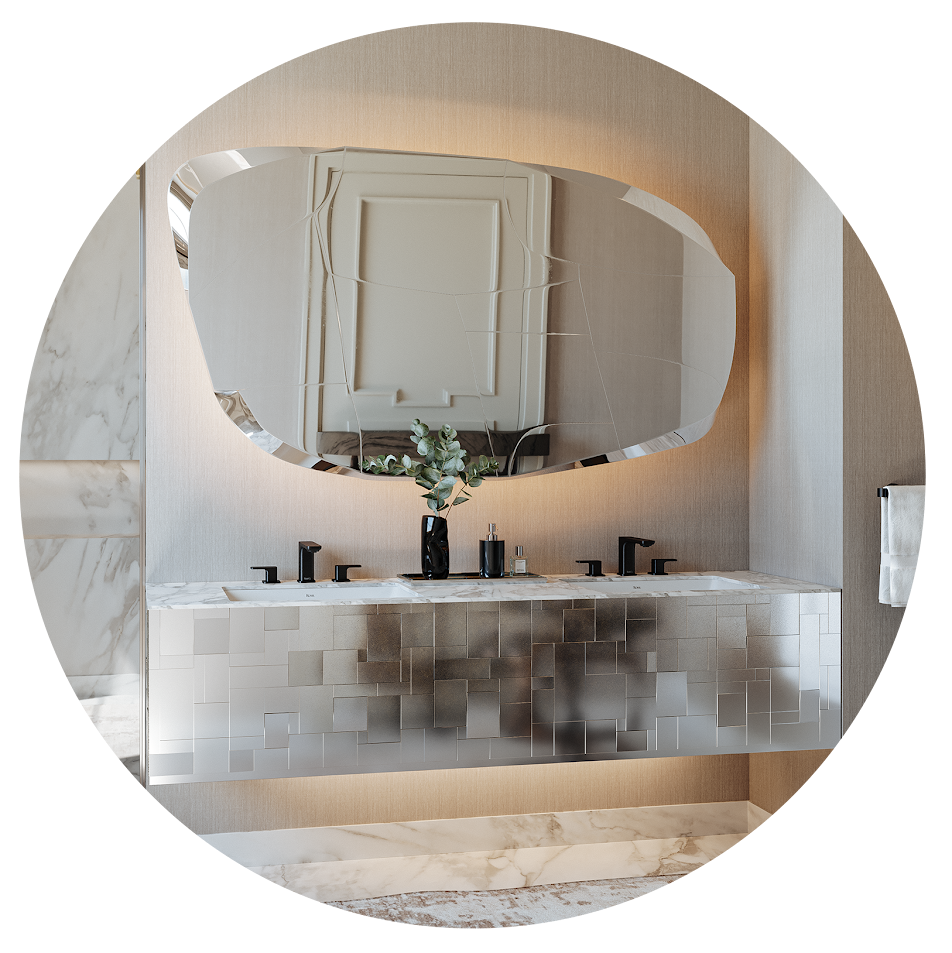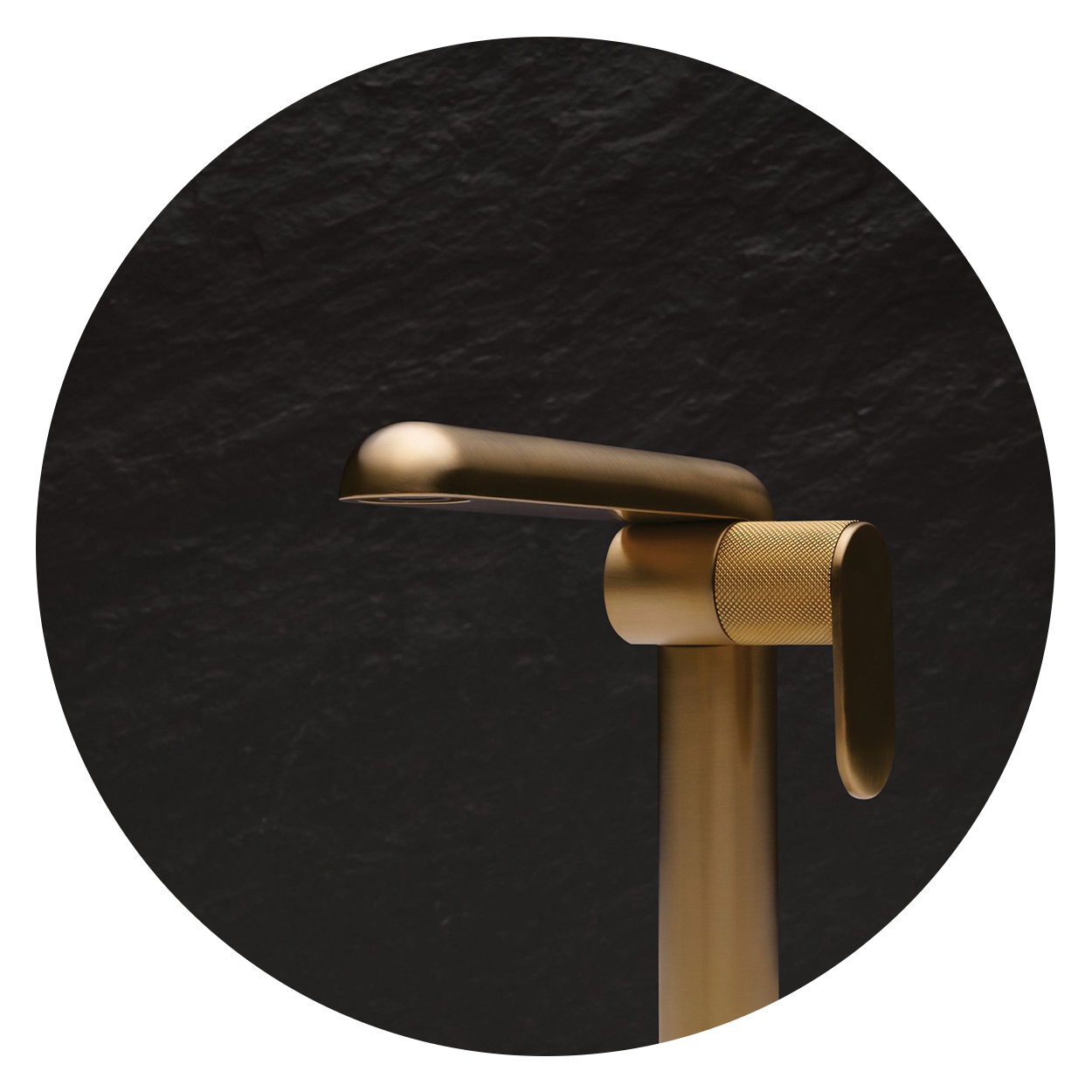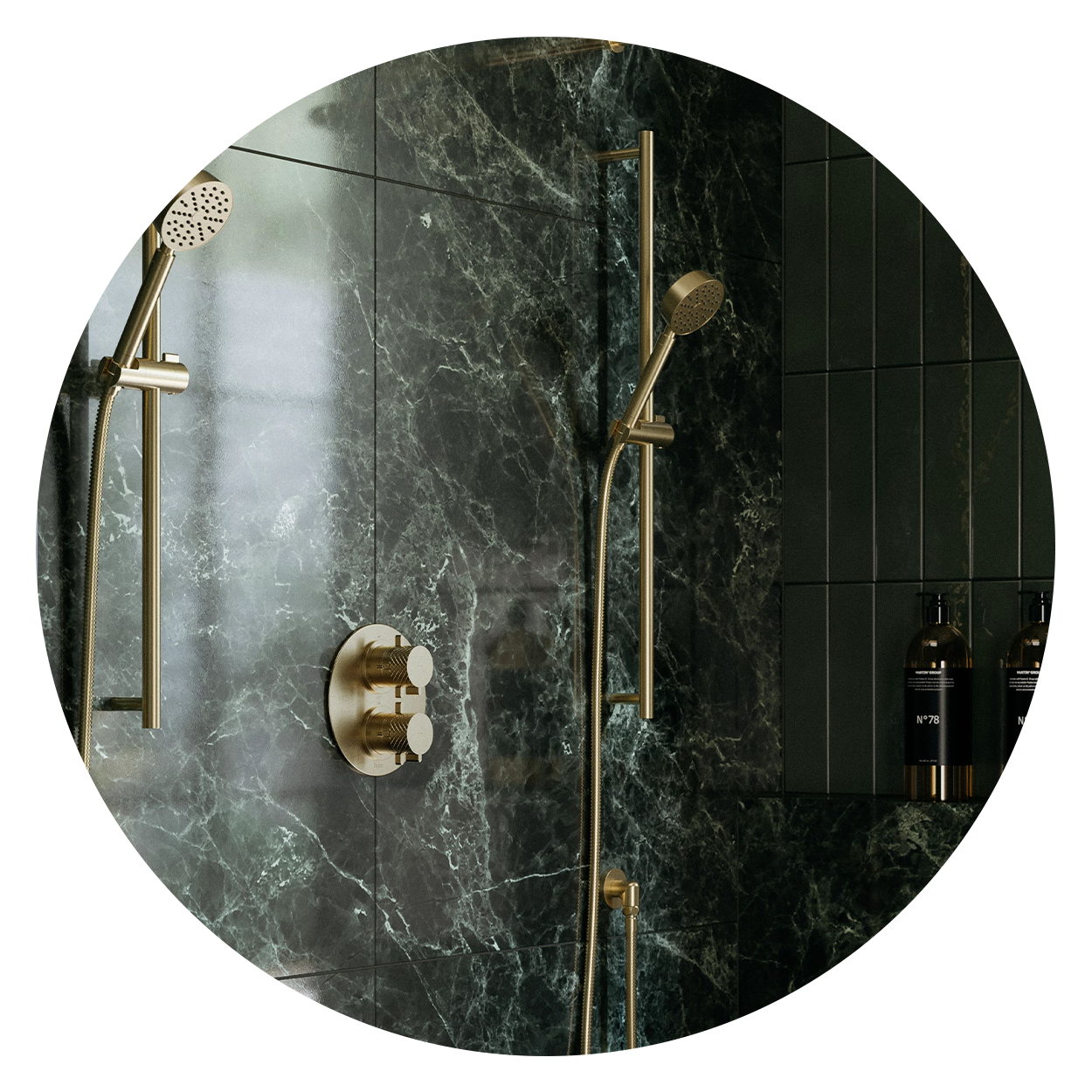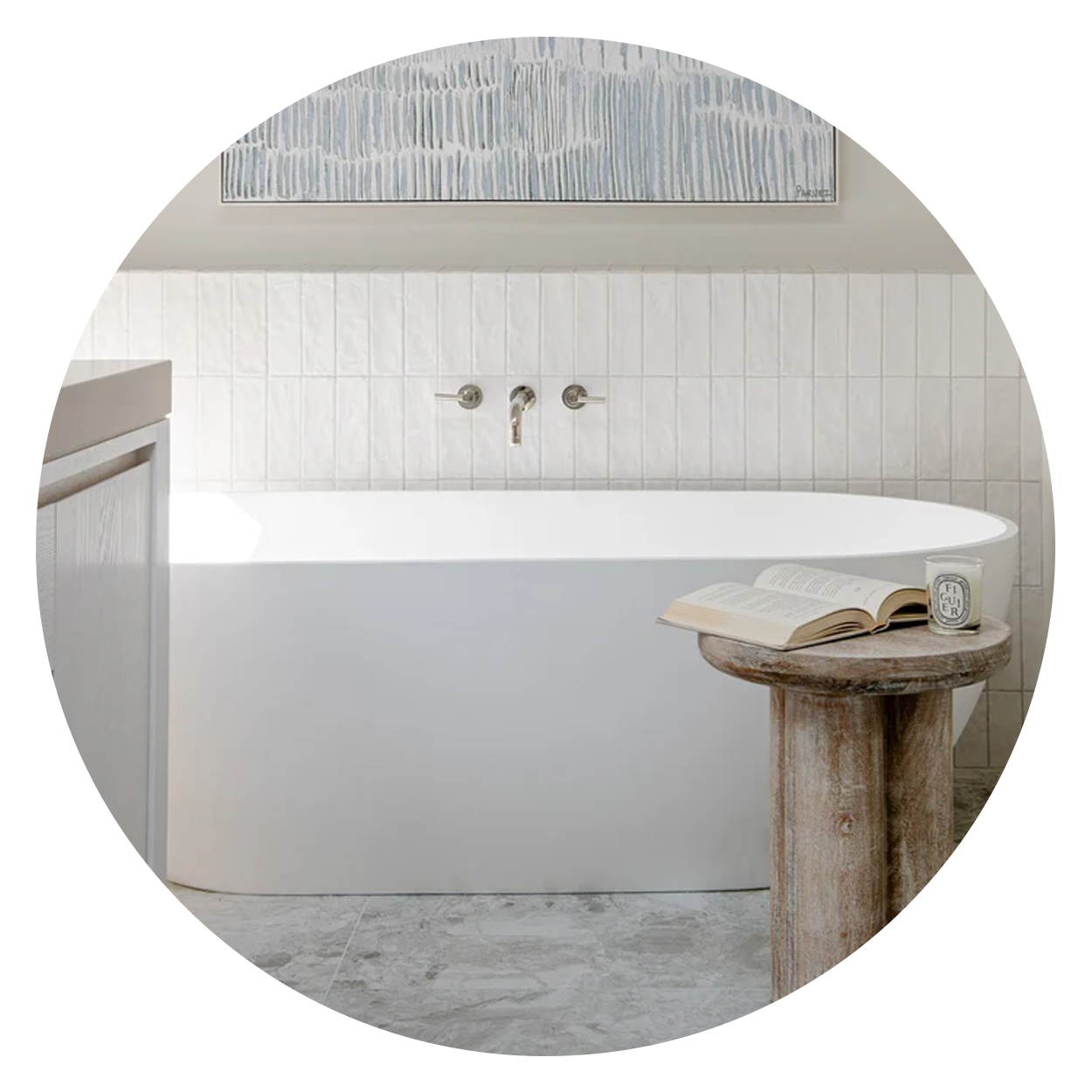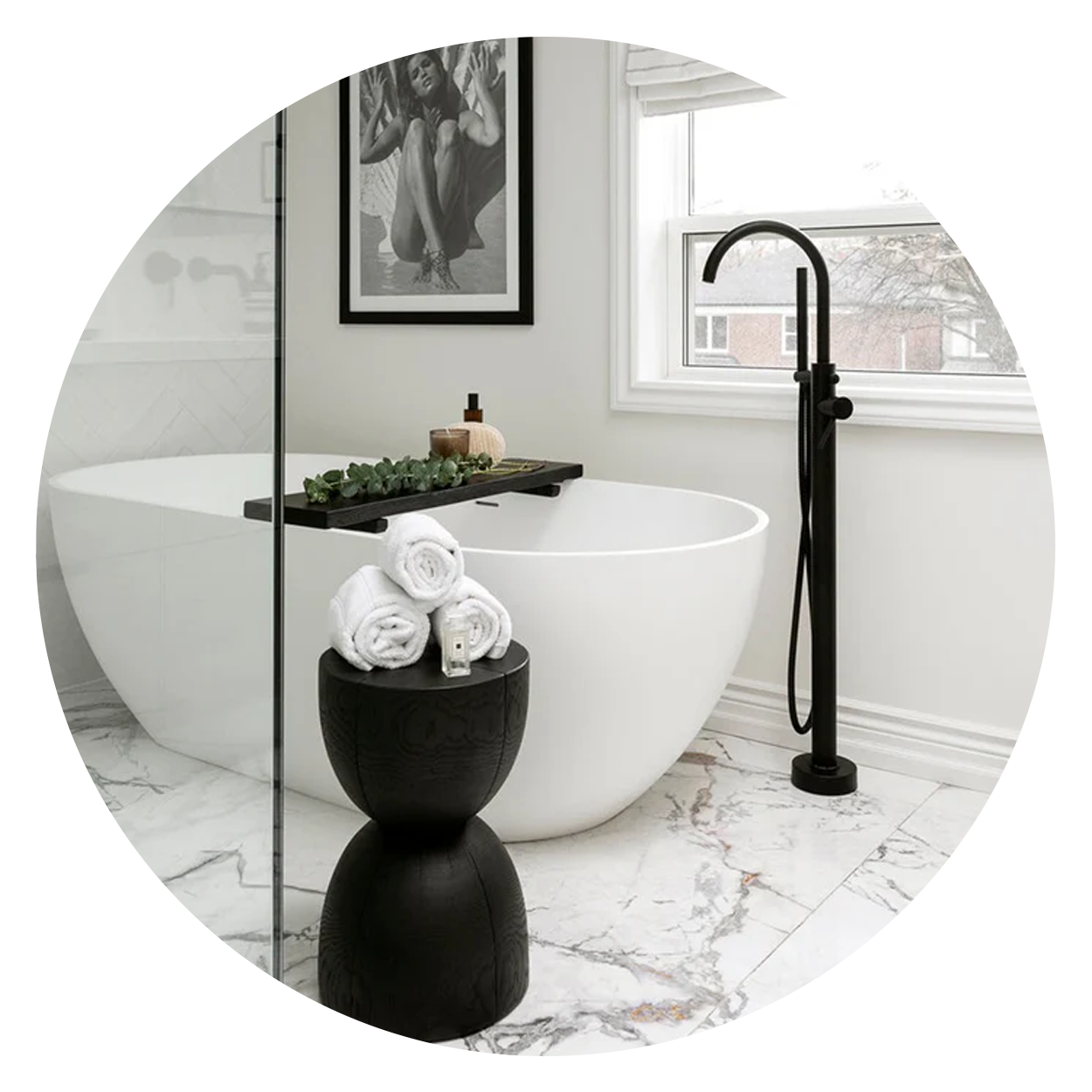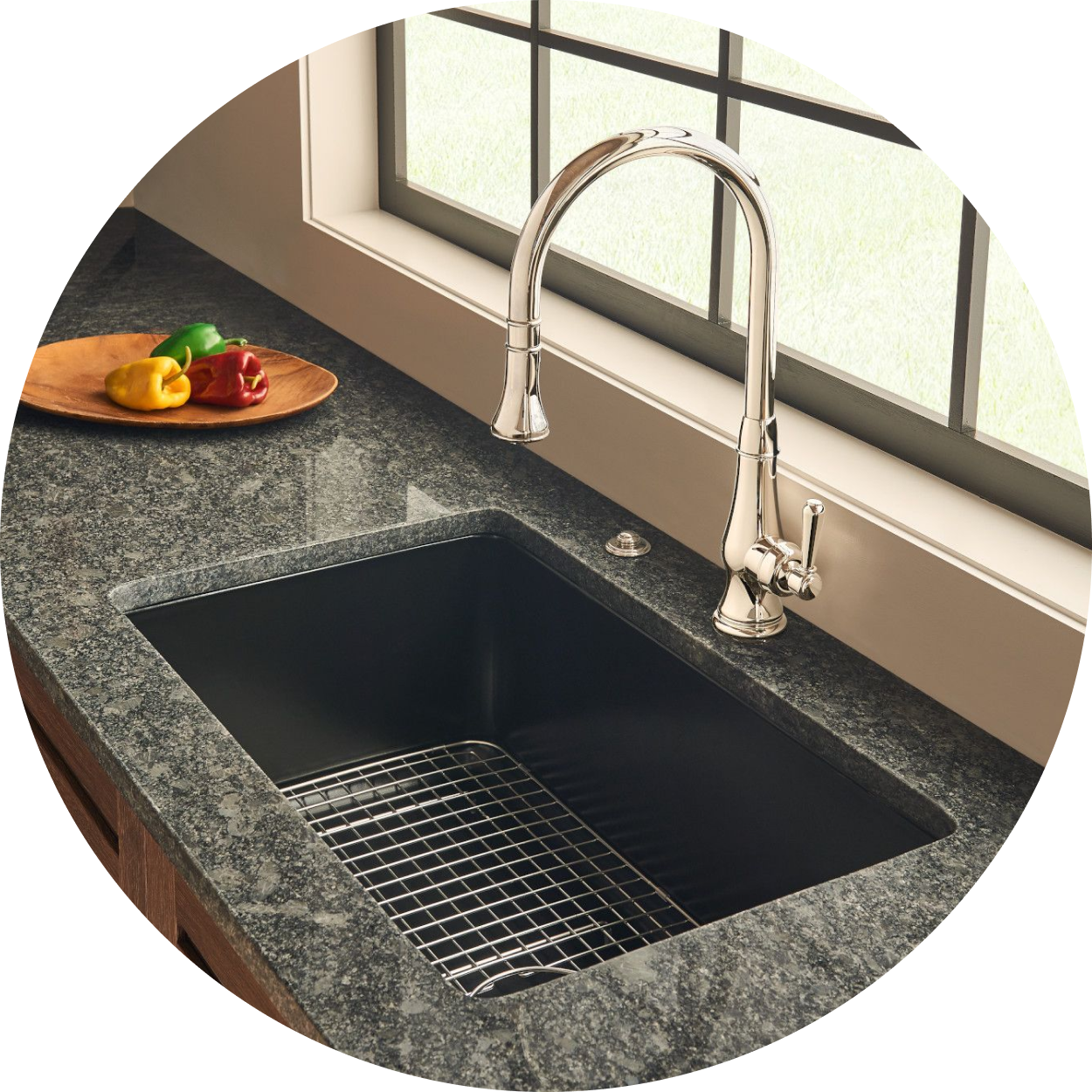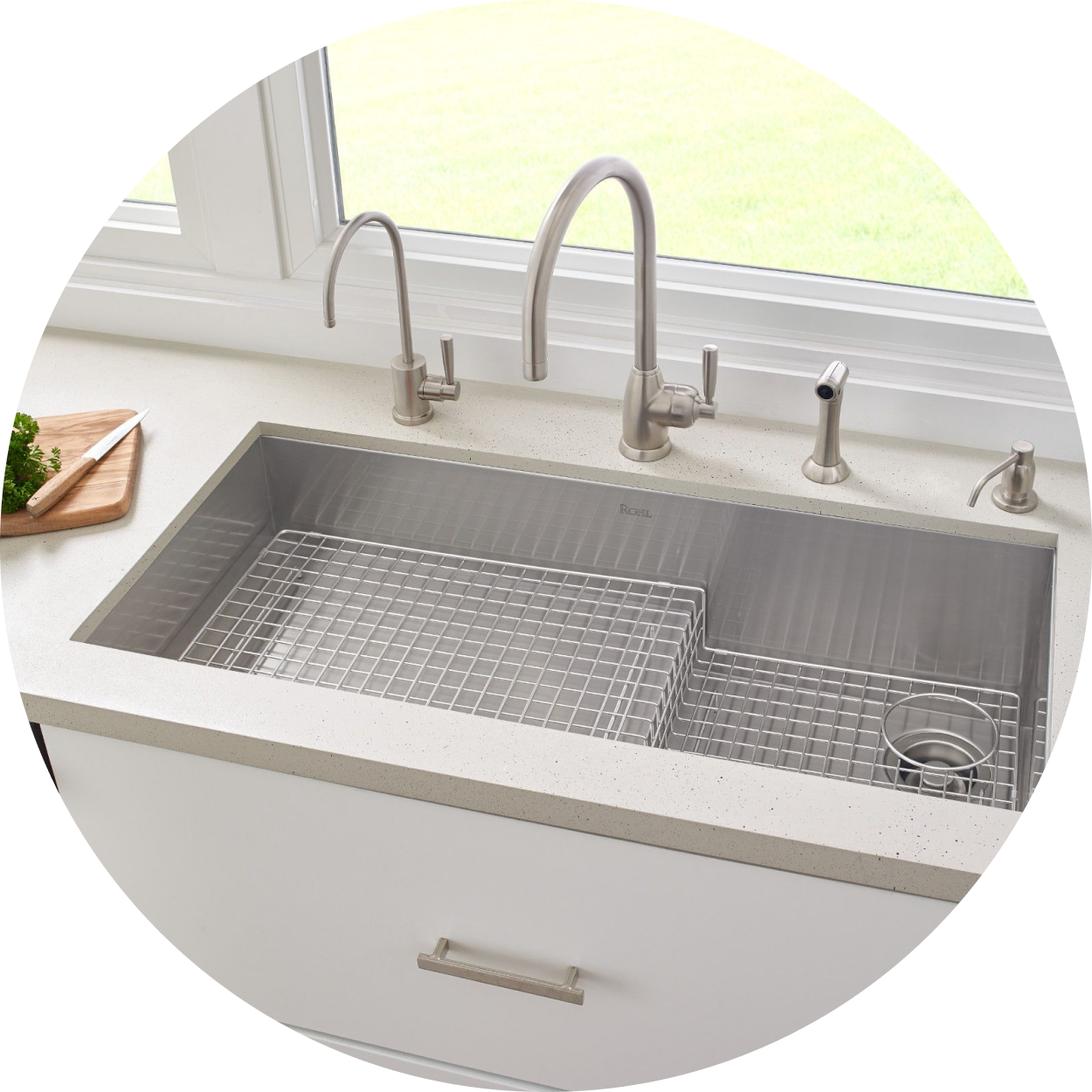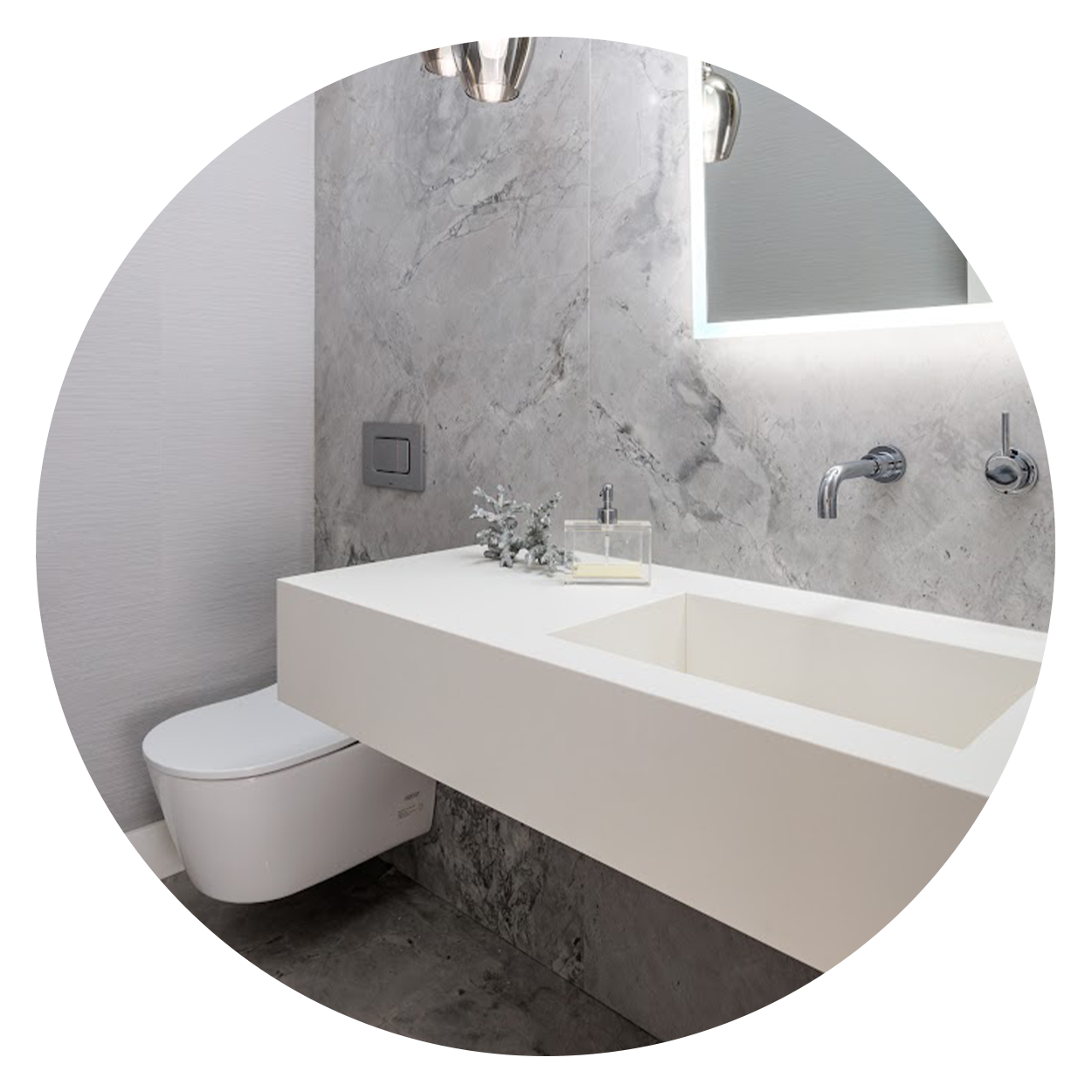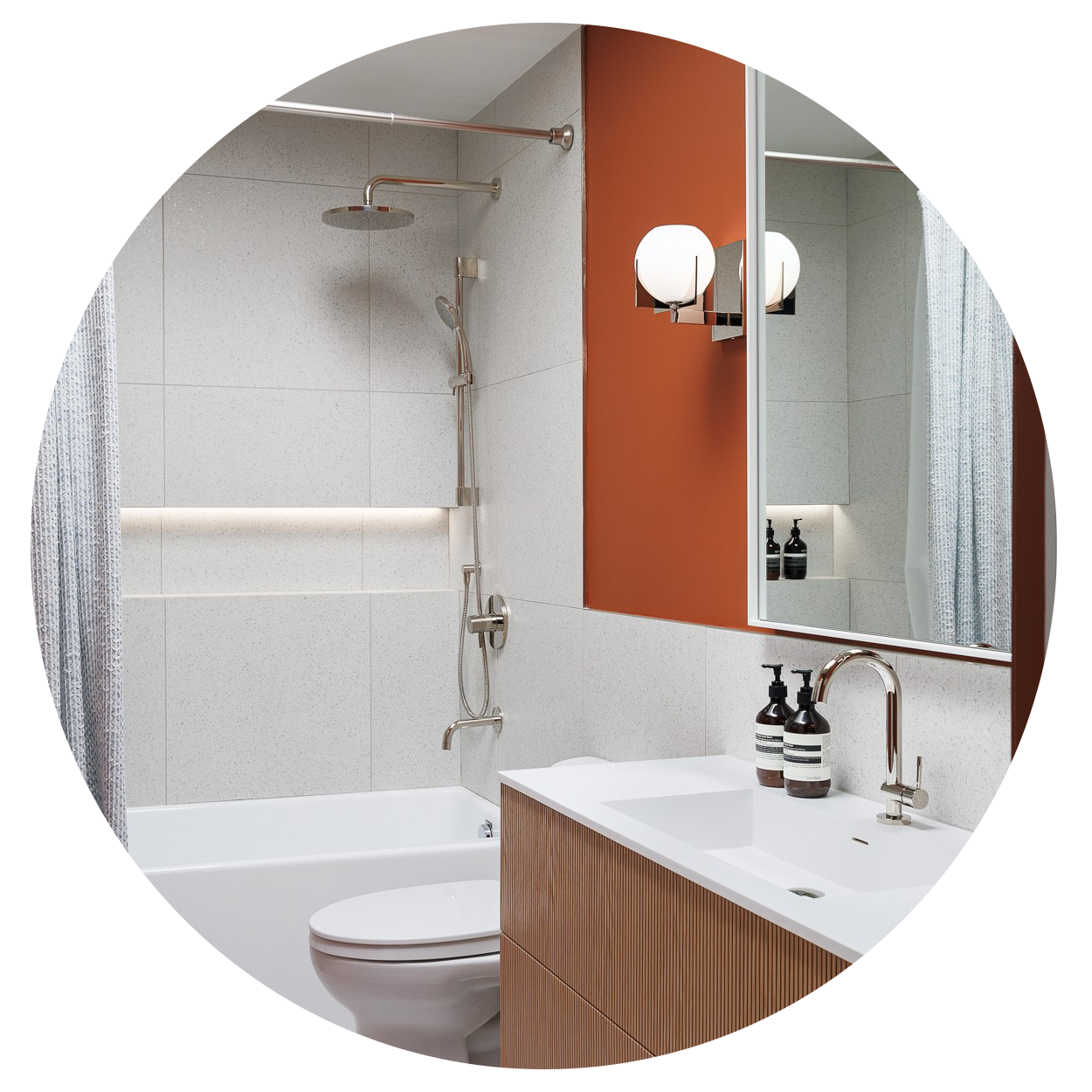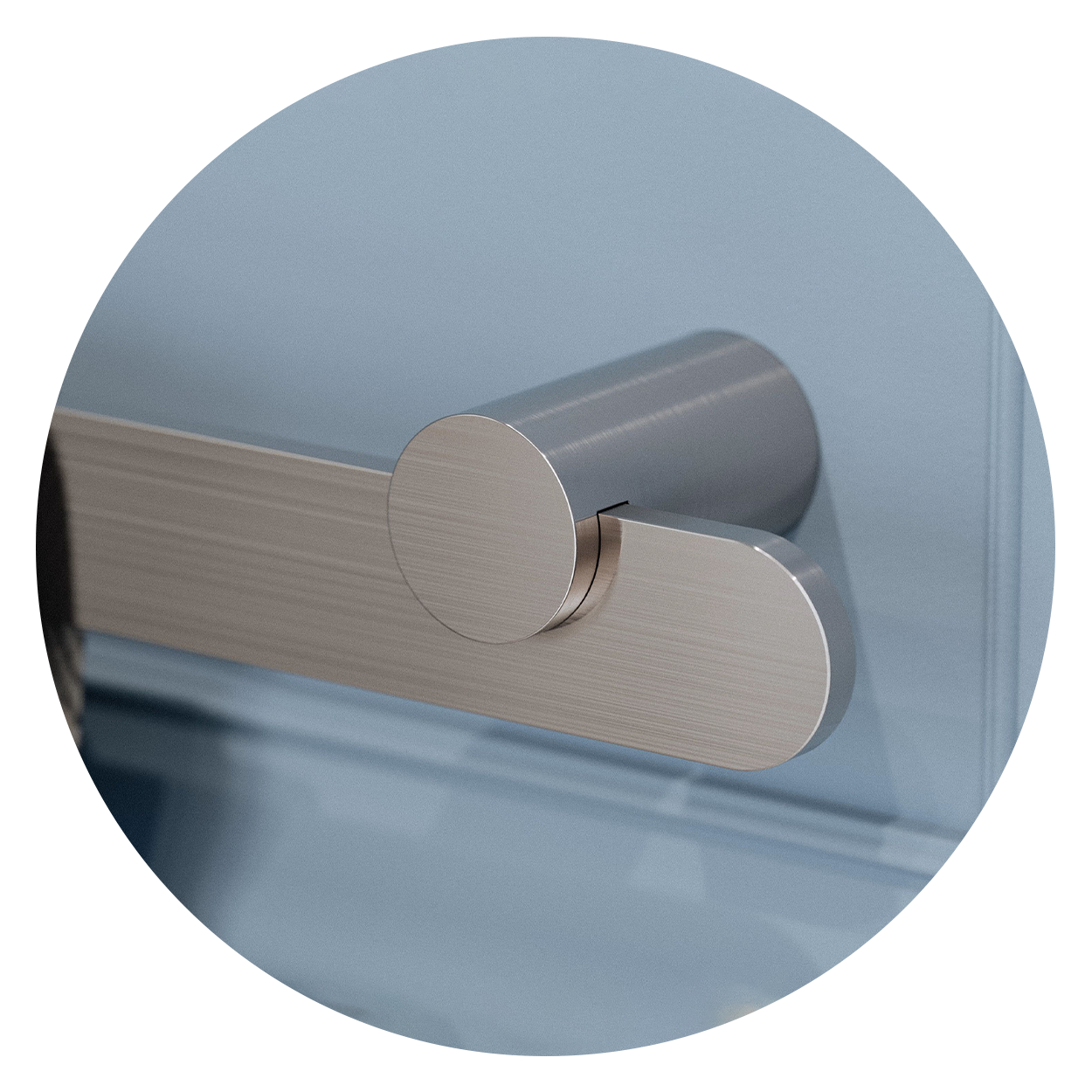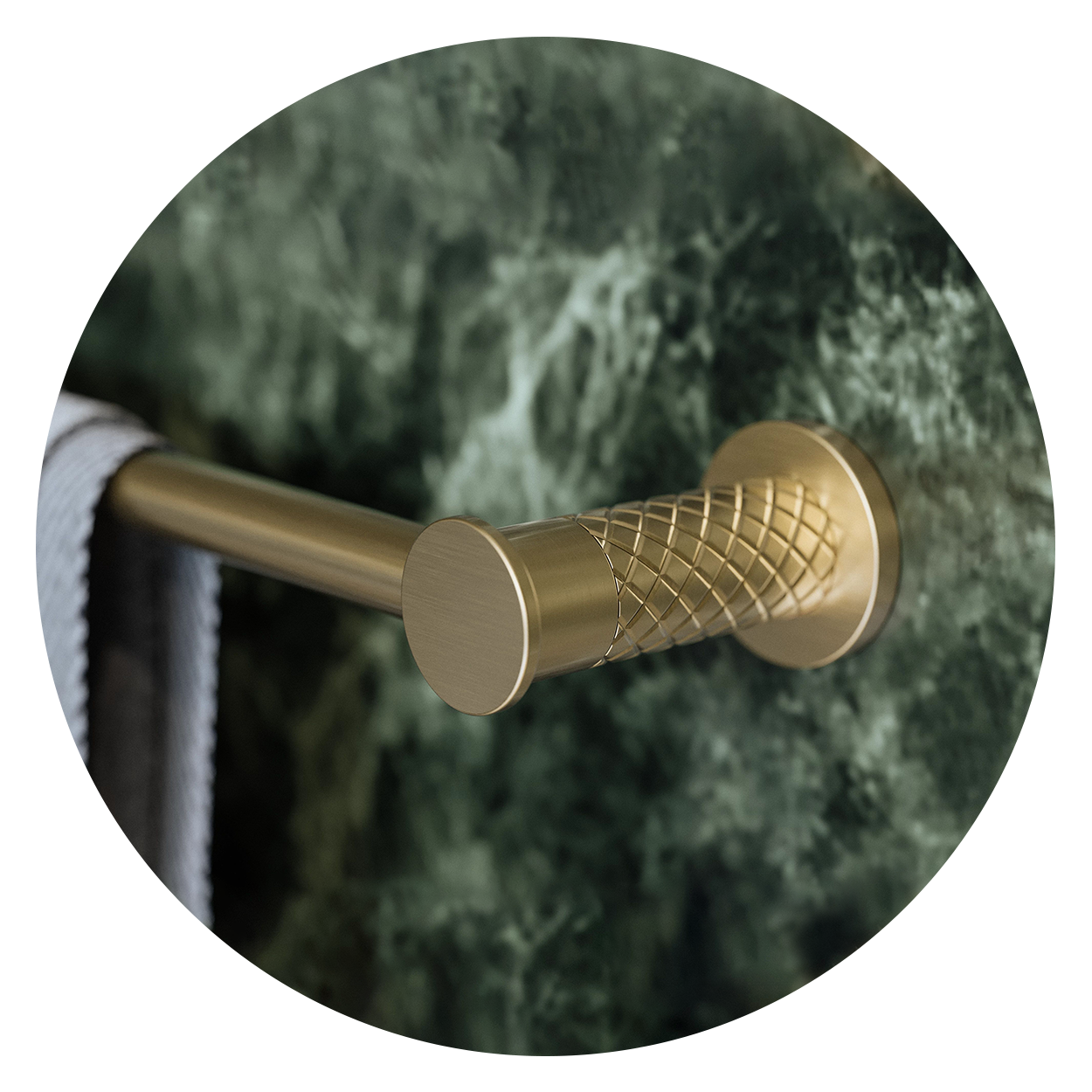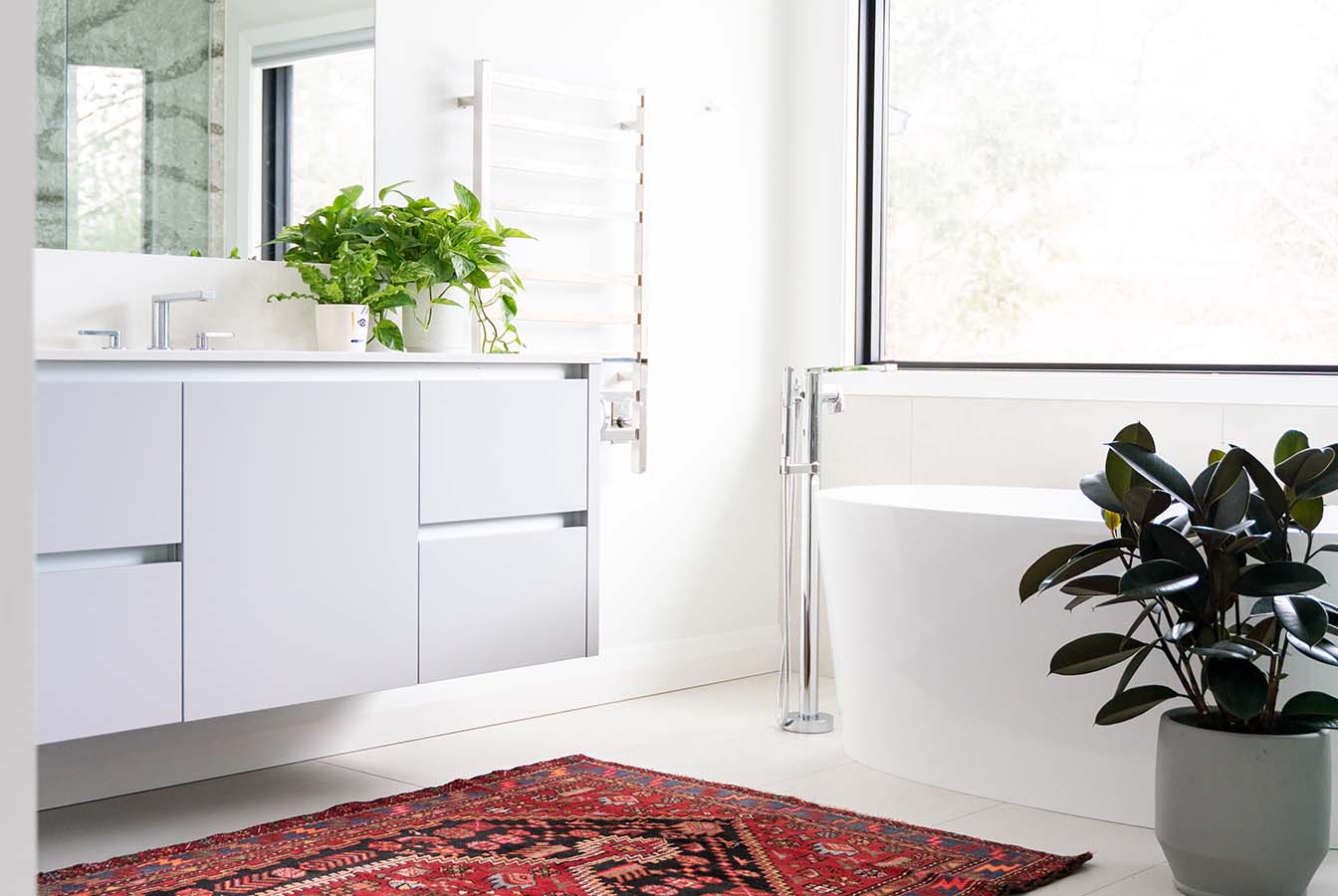
Cleaning Your Bathroom Countertop
No bathroom countertop is safe from it. If you don’t make it a habit to clean, bacteria accumulate from the unattended buildup of dust, hard water, toothpaste/soap residue, makeup-spills, and lonely hair strands. Each bathroom is unique but for the most part, the countertops in many modern homes are made with either some form of natural stone or a blend of synthetic materials. Whether yours is made with marble or a solid surface blend, caring and cleaning for a countertop is as simple as wiping it down with water and soap. But look on further below to get general maintenance and care tips for your vanity countertop.
How to Clean A Marble Countertop
Marble is known for its rich variations of color and patterning. It’s a luxurious countertop option because of its durability and appearance so handle it with care. Cleaning it, however, is as simple as wiping it down with a microfibre cloth and some mild soap diluted in warm water. You could even use marble-specific cleaning agents, but make sure to read the labels and handle them with caution (though we think it’s safer to just use soap and water). Avoid using vinegar or lemon and water as cleaning solutions - the acidity of the mix can break down your marble’s sealing and could wear down and stain. Similarly, void abrasive cleaning tools like scouring pads to avoid scratching the surface.

How to Clean A Quartz Countertop
Quartz is resistant to mold, mildew, and bacteria, and therefore another durable option that’s as good as marble. For regular cleaning, wipe it down with warm water and soap, and a damp washcloth. Just like marble, avoid acidic cleaning solutions as it erodes the material, and stay away from scouring pads.

How to Clean A Solid Surface Countertop
Avoid harsh acidic chemicals like drain cleaners and vinegar. Do use a warm solution of soapy water and wipe regularly. If the countertop is stained, leave the solution on for a bit before wiping it off. For harsher stains, it might require something extra so use a mild ammonia-based all-purpose cleaner to get the job done. For matte countertops, clean them with a mixture of baking soda and water. Mix the two together to make a paste. Apply it to the stain, wait a bit, and wipe it down.

How to Clean an Acrylic Resin Countertop
Although soap and water should be more than enough to clean off grime and bacteria, you can also buy cleaners designed specifically for acrylic resin. Always check labels or ask your local supplier if it is good for cleaning. Avoid harsh brushes or scouring pads and definitely avoid using acetone (like nail polish removers) as it can melt away at your countertop.

Clean Often & Clean Regularly
A little bit of cleaning goes a long way. Bacteria can build up and things get more difficult to clean once soap residue or hard water settles. Doing quick, regular wipe-downs a few times a week and deep cleaning once a week seems tedious, but it makes cleaning tons easier and makes your bathroom organized.
Water Resistant, Not Waterproof
Being water resistant does not mean a countertop is invincible from water damage. Your vanity countertop is built to withstand the wet and humid conditions of a bathroom. However, water can still be absorbed depending on the porosity of the stone and damage the counter from within. Your countertop can last a while and can take on daily spills, but make sure to wipe them up to reduce any long-term damage.
Keep Heat Away
Depending on your countertop’s material, each one of them has a different resistance to heat. For example, quartz can handle heat although it is not as resistant as natural stones like marble. Solid stone countertops, on the other hand, can scorch easier with a curling iron. Whatever the material, it’s better to be safe by not leaving items unattended that can scald you or your vanity top.
Be Wary of Harsh Cleaning Products
We do not recommend using harsh cleaning solutions like bleach to clean your countertop as it can wear away the colour and material. Even a traditional mix of vinegar-water or lemon water, although non-toxic, can wear away marble or stone overtime because of its acidity.

